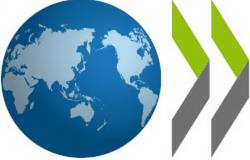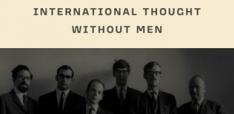The Evolving Role of the OECD: A New Development Strategy for a Geopolitical World

Stephan Klingebiel and Andy Sumner ask what would make the OECD's new strategy a big hit?
In today’s dynamic international context, it is surprising how little attention is paid to the Organisation for Economic Co-operation and Development (OECD), a well-established yet often overlooked international institution. Unlike the G20 or BRICS, which emerged as prominent players over the past two decades, the OECD has been a stalwart of global economic governance for decades. However, like all international organizations, the OECD has had to adapt to a dramatically shifting global landscape, undergoing significant transformations in the process.
Historically viewed as a “club of wealthy Western countries,” the OECD’s image is evolving. The very concept of “Western values” has grown ambiguous in recent years, especially in an era marked by the rise of populist and illiberal leaders. Whether the Heritage Foundation blueprint “Project 2025” will be implemented once Trump returns to the White House remains unclear - but we know already that one crucial co-author, Russell Vought, will be back in the White House in a leading position soon. Notably, Project 2025 (p. 698) states: “The U.S. should end its financial support and withdraw from the OECD.”
Expanding Membership: Towards a Different OECD
One of the most significant shifts in the OECD’s identity has been its expanding membership to include countries from the Global South. Over the past decade, nations like Chile (2010), Colombia (2020), and Costa Rica (2021) have joined, bringing diverse perspectives to the table. This trend is set to continue, with Argentina, Brazil, Indonesia, Peru, and Thailand currently in the accession process.
While this enlargement strengthens the OECD’s relevance in a multipolar world, it also challenges the organization’s traditional identity. Integrating economies with diverse developmental trajectories and priorities necessitates redefining its role and strategies. This expansion is not merely symbolic; it is a strategic move to address the broader global economic and political power shift. However, it would be naïve to assume that such diversification will not impact the cohesion and operational dynamics of the organization.
Revisiting Development Strategies
In 2012, the OECD adopted a Development Strategy that reflected the global discourse of its time, emphasizing collective action and transcending the traditional North-South divide. The strategy captured the optimism of the early 2010s, paving the way already to milestones like the Paris Agreement on Climate Change and the 2030 Agenda for Sustainable Development.
Yet, the world has changed dramatically since then. Development has become a high-stakes geopolitical issue, with initiatives like China’s Belt and Road Initiative (BRI) and Global Development Initiative (GDI) showcasing the country’s growing soft power in developing regions and elsewhere. Meanwhile, countries of the Global South have emerged as pivotal players and co-creators in international relations, challenging the traditional OECD to stay relevant in this new context.
Recognizing these shifts, the OECD has committed to presenting a “whole-of-OECD Strategy on Development” at the time of the Ministerial Council Meeting in 2025. This ambitious initiative offers a fresh opportunity to shape the global development discourse and fill the international leadership vacuum in sustainable development.
What aspects would make the OECD new strategy a big hit?
1) Prioritising Global leadership in Sustainable Development:
The lack of coherent global leadership on sustainable development has been palpable in recent years. If the OECD can step up as a constructive force in this domain, it could play a transformative role in aligning global efforts.
2) Centring Policy Coherence for Sustainable Development (PCSD):
For years, the concept of PCSD has been recognized as critical but has struggled to gain traction beyond niche discussions. A holistic strategy could position the OECD as a role model, integrating sustainable development principles into core areas like trade, investment, and taxation—areas where it is already a standard-setter.
3) Focusing on Inclusivity Beyond Membership:
While the OECD’s membership is diversifying, the organization must engage voices beyond its immediate ecosystem. The OECD Development Centre, with its distinct membership—including China and India—offers a valuable platform for broader dialogue. However, reaching out to governments, think tanks, and civil society actors in other countries of the Global South will be crucial to ensuring the strategy reflects diverse global realities.
Potential Pitfalls
As the OECD moves toward drafting and finalizing its new strategy, the process itself could set a precedent for inclusivity and collaboration. Engaging stakeholders beyond its traditional networks and fostering dialogue with non-member countries could enrich the strategy and enhance its legitimacy.
However, this journey will not be without challenges. The geopolitical landscape is volatile, and the potential for disruptive developments—particularly in U.S. policy on climate and trade for example —could impact the OECD’s trajectory. The process leading to the 2025 Ministerial Council Meeting will be as significant as the final document itself, offering insights into the OECD’s adaptability and commitment to global development.
The OECD stands at a crossroads, navigating a rapidly changing world while redefining its role as a leader in sustainable development. Its new strategy represents a critical opportunity to bridge divides, address pressing global challenges, and remain a relevant force in international relations. If the OECD can successfully balance its traditional strengths with the demands of a more inclusive and multipolar world, it could emerge as a powerful catalyst for global development progress in the years to come.
Stephan Klingebiel heads the research program “Inter- and Transnational Cooperation” at the German Institute of Development and Sustainability (IDOS). He previously led the UNDP Global Policy Centre in Seoul (2019–2021) and the KfW Development Bank’s office in Kigali, Rwanda (2007–2011). He is also a guest professor at the University of Turin (Italy), a senior lecturer at the University of Bonn, and an Honorary Distinguished Fellow at Jindal University (India).
Andy Sumner is Professor of International Development at King’s College, London, and President of European Association of Development Research and Training Institutes (EADI). He is a Fellow of the Academy of Social Sciences and the Royal Society of Arts; a Visiting Professor at the Centre for Economics and Development Studies at Padjadjaran University, Indonesia; and Senior Non-Resident Research Fellow at the United Nations University, WIDER, Helsinki and the Center for Global Development, Washington DC.


